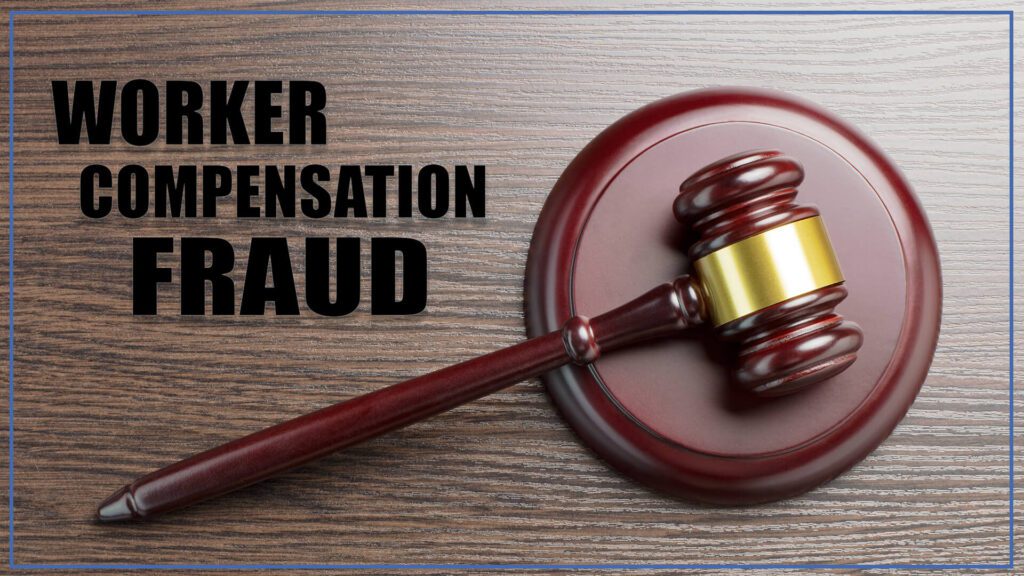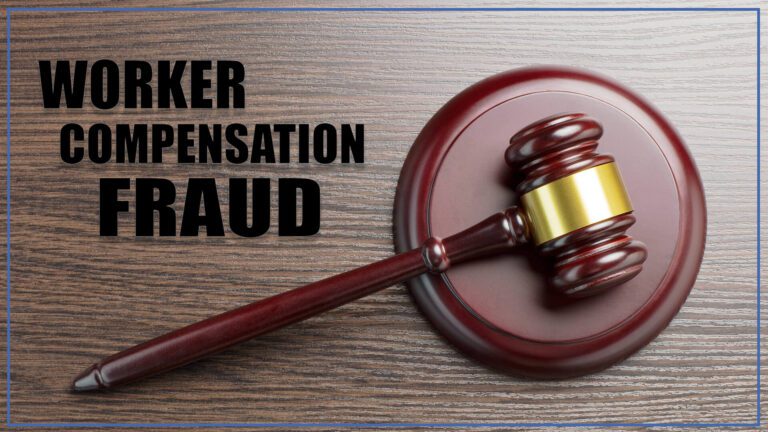Introduction:
When an employer, health care provider, or an applicant intentionally lies to get the benefits, savings, money, or any other advantages, it is said to be a worker compensation fraud.

Although many people strongly believe that the worker compensation fraud is completely based on the scenario when employees exaggerate or lie about their injuries or damage.
However, both employee and employer can be involved in worker compensation fraud to get maximum insurance premium and other benefits.
Things to Know About Worker Compensation Fraud:
An employer can be responsible for paying medical expenses, if any employee gets sick or injured due to any work-related causes. In case an employee sues an employer or employer’s business, he may need to pay all legal expenses out of his pocket.
Worker’s compensation insurance can help employees to provide benefits if they get sick or injured due to their work. It covers all medical costs of injured or sick workers. It also helps workers to get some of their work wedges, if they miss their work due to any injury or illness.
Because of all these advantages and benefits of worker compensation, people are enticed to commit worker compensation fraud. Such kinds of fraud can be committed by employees, employers, or even by healthcare providers.
The nature of worker compensation fraud can be simple to complex. It can lead a company or business to pay higher insurance premiums and penalties. So, all business owners and employers must be able to identify such frauds to save their money from fraud.
Some Common Examples of Worker Compensation Fraud:
Worker compensation fraud involves someone lying knowingly to get financial benefits. Anyone like an employee, employer, or health care provider can be involved in it. Following are some common examples of worker compensation frauds:
- An employer uncategorized the employees to avoid paying for worker compensation insurance premiums.
- Employees impose any injury or sickness and get financial benefits in the form of medical expenses by using worker’s compensation insurance.
- A medical professional or healthcare provider is over billing for a healthcare service that was not provided to get the money from the worker compensation program.
Worker compensation fraud can be a complicated topic for business owners and employers. You can prevent worker compensation fraud by helping your employees and workers to understand what exactly worker compensation insurance is.
By making workers understand it is an employee benefit program that they can use when they get any injury or illness due to any work-related cause can help to limit the possibilities of compensation fraud.
Common Kinds of Workers’ Compensation Fraud:
1. Employee Compensation Fraud:
Employees can be accomplished in several ways. It may include
- Fake injury
- Lying about the illness
Employees can submit entirely fake claims based on these fake injuries or illnesses. They can commit worker compensation fraud in numerous ways.
Some common examples of employee compensation are:
- A worker reported his injury at work while lifting a box and received worker compensation insurance benefit for the injury that never
- A female employee claims that she became sick of working with chemicals in her workplace.
- An employee experiences repetitive injuries at work, but while he reports his injuries to the supervisor, he exaggerates the condition and shows it as a more serious injury.
2. Business Owner Compensation Fraud:
Generally, most states have lawsuits for coverage of compensation if you have employees. Employers also commit various attempts to reduce the cost of worker compensation insurance premiums and medical expenses. Employer compensation frauds may include:
- Employers may categorize employees as temporary or contractors in order to lower the worker compensation insurance premiums. Misclassification of workers is considered fraud, and if you are found to misclassify your workers, then you can be liable for penalties.
- An employer can provide incorrect information on the number of employees working for him. It can be an attempt to reduce insurance premiums as the number of workers impacts the compensation cost.
- If an employer tells an insurance company or agent that they have a safety program in their workplace, it can lower the compensation cost. But in reality, they don’t have any worker safety programs at the workplace or company.
3. Personal Time Compensation Fraud:
Personal time fraud is also known as “Weekend Warrior Fraud”. It occurred when any worker injured himself at the weekend or at his time when at work in an attempt to claim financial compensation benefit.
To limit such frauds, business owners and companies can consider the following points:
- The company needs to completely conduct a thorough incident investigation
- Speak to the witnesses to check the validity of the claim
- Ask about every small detail of how this injury happens.
- Review the footage from security cameras to know what exactly has happened.
- Start investigation as soon as possible (Usually from the next working day) and document all details of the incident in a report.
4. Healthcare Professionals Fraud:
Healthcare professional compensation fraud occurs when a fraud or corrupt medical professional is also involved. In such compensation frauds, the healthcare professional may charge extra medical bills for the services that were not provided.
They commit this fraud in an attempt to overcharge the bills considering that the medical worker compensation insurance provider will pay the overall medical costs and other expenses.
5. Double Dipper Frauds:
Double dipper fraud happens when an employee temporarily collects the disability compensation insurance check and continues to work at the company, and also earns a paycheck. In such fraud cases, usually, the paycheck is received from other than the business worker compensation insurance payment.
Double Dippers frauds can be dangerous for the company in many ways. If an employee defies their doctor’s order to stay at home and take proper rest to recover from injury and continue to work at the company, it can make the injury even worse.
Companies can limit, double-dipper frauds by:
- Ensuring they have the best return to work program at their company or business.
- Keeping a proper record of reports at every visit to the doctor and checking the recovery status of an employee to determine when he is ready to return to work completely.
Methods and Techniques to Identify Workers’ Compensation Fraud:
All business owners and employers must be able to identify and understand worker compensation fraud. According to estimation, about $30 billion annually costs employers regarding worker compensation frauds.
An understanding of how to identify such frauds can help business owners and employers to reduce the amount associated with fraudulent claims of worker compensation insurance.
Here, we have described some ways that you can use to identify if a worker is committing fraud:
- If a worker gets injured or sick at the workplace, they should report it to the supervisor and clearly state what exactly happened. If the statement of the worker changes or adds up numerous times, it can be a cause of concern for you.
- If your company or workplace is equipped with security cameras, then you can review, video footage to know what exactly happened.
- Speak to the coworkers of the employee or other witnesses to crosscheck the story of your employee. If the statement of the witness does not match with the employee incident report, then it can be an alarm for you.
- To reduce the risk of worker compensation fraud, explain and help new workers to understand the process of reporting any sickness or injury. Tell your employees about the outline that they need to consider while filing claims.
- Train your workers and business employees about the worker compensation policies and return to work program. The main purpose of this training should be to help workers to understand what to do when they get sick or injured on the job.
How Can You Look Over the Workers Compensation Fraud?
If you suspect there might be laborers’ compensation fraud happening at your business, you should report it. Even if you accept a worker presenting a case, detailing it can assist with securing you and your business. Furnish your state with data on the name and address of the individual you’re revealing.
- Be sure to incorporate data about the episode. Clarify why you accept the individual might be submitting laborers’ comp extortion.
- Provide any significant extra data and insights concerning the individual.
- After revealing laborers’ comp extortion, a state organization or official commonly dominates and researches.
Frequently Asked Questions (FAQs):
1. What are the popular types of worker compensation frauds?
Perhaps the most well-known sorts of laborers’ working compensation frauds are the deliberate misclassification of laborers. Under California law, a business is needed to convey laborers’ remuneration protection and pay benefits just for their workers.
2. What is the best example of laborers’ compensation fraud?
Here are some speedy examples of laborers’ compensation fraud. A representative fakes a task injury or sickness and utilizes their laborers’ remuneration advantages to getting an installment for clinical expenses—a clinic specialist bills to help that was not performed.


